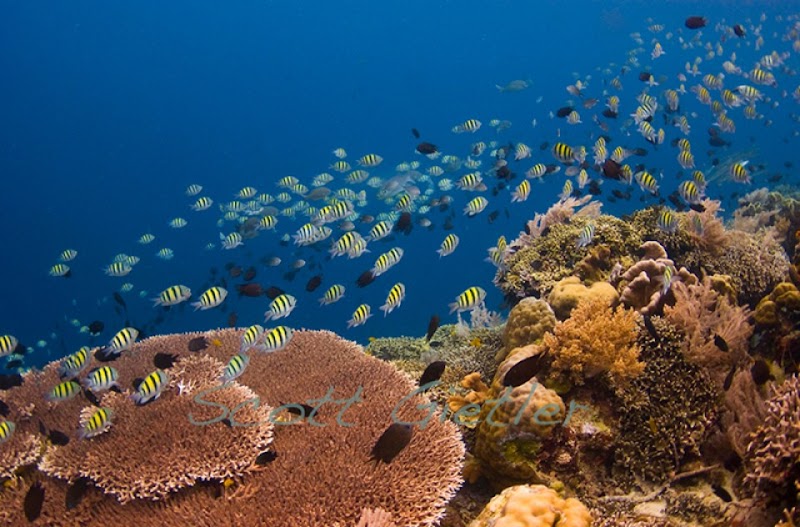
Rhythms of Manado: Exploring the North Sulawesi Jazz Festival
Experience the vibrant North Sulawesi Jazz Festival in Manado, where tropical breezes meet soulful rhythms. This lively event offers a blend of world-class jazz performances, cultural workshops, and local flavors, set against the stunning coastal backdrop of Indonesia’s northern tip.
Stay Hydrated in Tropical Heat
Manado’s warm, humid climate requires you to drink water regularly throughout the festival to stay energized and comfortable during outdoor performances.
Wear Comfortable Footwear
Festival venues often have uneven pavement or sandy areas. Breathable, sturdy shoes will keep your feet happy through long days and nights of exploration and music.
Plan for Sudden Rain
Although the festival falls in a drier season, tropical showers can still appear unexpectedly—pack a lightweight rain jacket or poncho to avoid disruption.
Download Ride Apps Ahead
Secure your rides with popular local apps before arrival; public transport is decent but apps offer a quicker, safer option for late-night travel.
Rhythms of Manado: Exploring the North Sulawesi Jazz Festival
Each year, Manado pulses to a different beat as the North Sulawesi Jazz Festival takes over this coastal city known for its vibrant culture and stunning landscapes. From the moment you step onto the festival grounds, jazz notes thread through the tropical air, mingling with the scent of clove cigarettes and sea salt. Stages rise against the backdrop of the Celebes Sea, where both local musicians and international talents weave improvisations that dare the ocean waves to keep up.
The festival isn’t just an auditory feast but a call to engage—offering workshops, jam sessions, and late-night performances that invite every visitor to feel the jazz spirit in their bones. Days here move with casual ease: explore Manado’s waterfront market before sinking into a hammock where percussion rhythms keep time with seagulls overhead. Nights are electric. The festival takes advantage of the city’s outdoor venues, where breezes push through palms and the crowd sways under the open sky, the humidity sparking a tangible energy.
Planning your trip is straightforward but rewarding. The festival typically falls between October and November, a window when the tropical rains ease and temperatures hover comfortably in the high 20s Celsius. Arrive in Manado beforehand to get your bearings—visit the karst formations nearby or dive Bunaken National Park’s clear waters to balance the musical intensity with nature’s quiet power.
Accessibility is good for all levels of attendees. The main venues are city-centered, walkable from popular hotels. You’ll want breathable clothing, good walking shoes for uneven pavements, and hydration gear, as tropical evenings hold onto warmth and humidity. Public transportation and affordable taxis keep moving, but downloading ride-hailing apps in advance helps keep your travels smooth.
Don’t miss local food stalls offering spiced seafood and warm coffee—it’s fuel for festival nights. Observe how nature around you plays its understated role: the wind catching harmonicas, the distant thunder that sometimes punctuates a saxophone’s cry, the subtle rustle of the trees seemingly applauding every note. The experience is as much about immersion as it is about music, an active dance between place, performance, and you.
Whether you're a jazz aficionado or a curious traveler, the North Sulawesi Jazz Festival in Manado calls for an adventure of sound and spirit in a setting that’s fiercely itself—welcoming, alive, and endlessly engaging.
Nearby Trips
All Adventures
Boat Charters
Water Activities
Adventures near Manado, North Sulawesi
Discover the unique and memorable adventures that make Manado, North Sulawesi special.
Frequently Asked Questions
When does the North Sulawesi Jazz Festival usually take place?
The festival typically occurs between October and November, coinciding with a period of reduced rainfall and pleasant evening temperatures in Manado.
What type of music can I expect at the festival?
While jazz is the focus, the festival showcases a range of styles including traditional Indonesian melodies, blues, and contemporary fusion, reflecting the rich cultural diversity of the region.
Is the festival family-friendly?
Yes, the event offers daytime workshops and interactive sessions suitable for all ages, though late-night performances are more adult-oriented.
Are there any cultural experiences linked to the festival?
Absolutely. Beyond music, visitors can explore local crafts, culinary specialties, and cultural exhibitions that highlight Manado’s heritage and ethnic roots.
How accessible is the festival for travelers with limited mobility?
Main venues are located in city centers and generally accessible, but some outdoor stages might have uneven ground; contacting the organizers in advance is advisable.
What’s a must-try local dish during the festival?
Cakalang fufu, smoked skipjack tuna, is a regional specialty served in many festival eateries—perfect fuel for your musical and cultural exploration.
Recommended Gear
Light, Breathable Clothing
Helps regulate body temperature in Manado’s humid tropical climate, keeping you comfortable during long festival days.
Water Bottle with Filter
Staying hydrated is key; a filtered bottle lets you refill safely from local sources without interruptions.
Comfortable Walking Shoes
Festival venues and city streets vary in terrain—good shoes ensure painless mobility throughout the event.
Light Rain Jacket/Poncho
Useful for sudden tropical showers that can appear even in drier months; pack compact for emergencies.
Local Insights
Hidden Gems
- "Ban Hin Kiong Temple, an intricate Chinese temple close to festival grounds offering quiet reflection. "
- "Lembeh Strait for rare muck diving experiences just a short drive from Manado."
- "The Tinoor Waterfall, a lesser-known natural spot perfect for cooling off."
Wildlife
- "Long-tailed macaques often spotted in city parks."
- "Colorful tropical birds include the Sulawesi hornbill nearby."
- "Marine life around Bunaken with turtles and reef sharks."
History
"Manado’s history is a melting pot of indigenous Minahasan culture with influences from Dutch colonialism, reflected in its architecture and festivals blending old and new."
